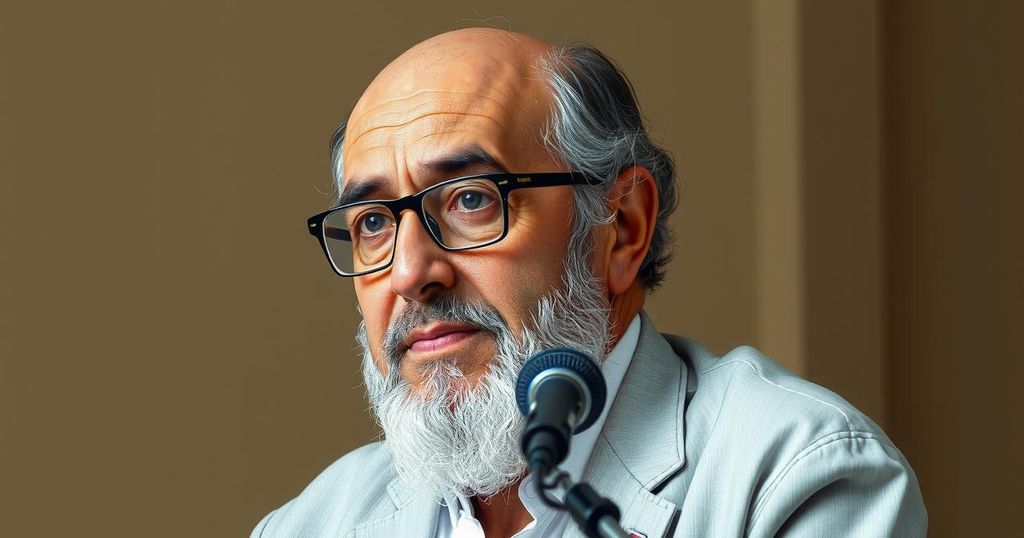Politics
AFRICA, AHMADU BELLO UNIVERSITY, ASIA, EYE HOSPITAL, GOVERNANCE, GOVERNMENT, HUMAN RIGHTS, KUWAIT, LEADERSHIP, MOHAMED IBRAHIM, MOHAMED IBRAHIM KHALIL, MOHAMED IBRAHIM KHALIL FRANCIS MADING DENG, NIGERIA, NORTH AMERICA, REFERENDUM COMMISSION, SOUTH SUDAN, UNITED STATES, UNITED STATES INSTITUTE FOR PEACE, WOODROW WILSON INTERNATIONAL CENTER FOR SCHOLARS
Leila Ramsay
0 Comments
A Tribute to Professor Mohamed Ibrahim Khalil: A Life of Integrity and Service
Professor Mohamed Ibrahim Khalil, who passed away on December 10, 2024, was a notable Sudanese lawyer, politician, and scholar, known for his roles as Attorney General and Dean of Khartoum University’s Faculty of Law. His international endeavors included influential positions within the United Nations and the International Monetary Fund. This tribute recounts personal memories highlighting his humane character, his initiatives towards South Sudan’s independence, and the depth of his friendships.
The passing of Professor Mohamed Ibrahim Khalil on December 10, 2024, deeply affected many, including myself, as I mourned the loss of a dear friend and esteemed colleague. Professor Khalil’s significant contributions to both national and international domains highlighted his exemplary life. His tenure included noteworthy positions such as the first Sudanese Dean of the Faculty of Law at Khartoum University and Attorney General of Sudan, where he dedicated himself to efforts leading to South Sudan’s independence in 2011.
His international influence was evident through his role as Special Advisor to the International Monetary Fund in Kuwait and his professorial duties at Ahmadu Bello University in Nigeria. After settling in the United States, he became a senior fellow at the Woodrow Wilson International Center for Scholars and the United States Institute for Peace. My personal memories are primarily centered around his role as my law professor and our collaborative endeavors in Washington, D.C.
As a law lecturer, Professor Khalil impressed me with his refined dressing and respectful demeanor towards his students, showcasing an admirable blend of humility and dignity. He played a pivotal role in my life, particularly by arranging an appointment with a leading ophthalmologist. This intervention was crucial in diagnosing a long-undiagnosed glaucoma condition that significantly impacted my vision and life trajectory.
During my visit to Khartoum while working at the Woodrow Wilson Center, I engaged in discussions with him regarding the crucial referendum on South Sudanese independence. It was surprising to learn of his dissenting views against the ruling Umma Party’s leadership, which he believed exacerbated divisions in the country. His decision to resign from the speakership demonstrated his integrity and commitment to a peaceful resolution.
Our friendship blossomed in the United States as we shared meals and discussions while advocating for shared political perspectives. Contrary to some Southern Sudanese beliefs about his political affiliations, I recognized his views aligned more closely with the secular aspirations of the Sudan People’s Liberation Movement.
A noteworthy instance occurred during a meeting at the Carter Center, wherein he humorously critiqued my representation of Sudan’s conflict, further demonstrating his strong stance against Islamic extremism. His leadership during the referendum process showcased his professional integrity as he steered the operation with objectivity.
In retrospect, people may mistakenly hold him accountable for South Sudan’s secession; however, he emphasized that the ruling Islamists’ agenda created conditions leading to that outcome. As I remember Professor Khalil, it becomes imperative to celebrate his life and contributions while honoring the legacy he has instilled in those who knew him.
The article reflects upon the life and contributions of Professor Mohamed Ibrahim Khalil, a prominent figure in Sudanese political and academic spheres who passed away on December 10, 2024. His multifaceted career included significant roles at Khartoum University, the Sudanese government, and international organizations, indicating his influence on both a national and global scale. The tribute also highlights personal accounts from Francis Mading Deng, emphasizing their professional relationship and friendship, particularly related to pivotal historical events involving South Sudan’s independence referendum.
Professor Mohamed Ibrahim Khalil’s legacy is one of integrity, dedication, and unwavering commitment to his beliefs. His multifaceted contributions not only shaped the formative legal landscape of Sudan but also served as an inspiration for many, including his friends and family. As we reflect on his passing, it is essential to remember the impactful life he led and the ideals he championed, ensuring his influence continues to resonate in future generations.
Original Source: sudantribune.com




Post Comment